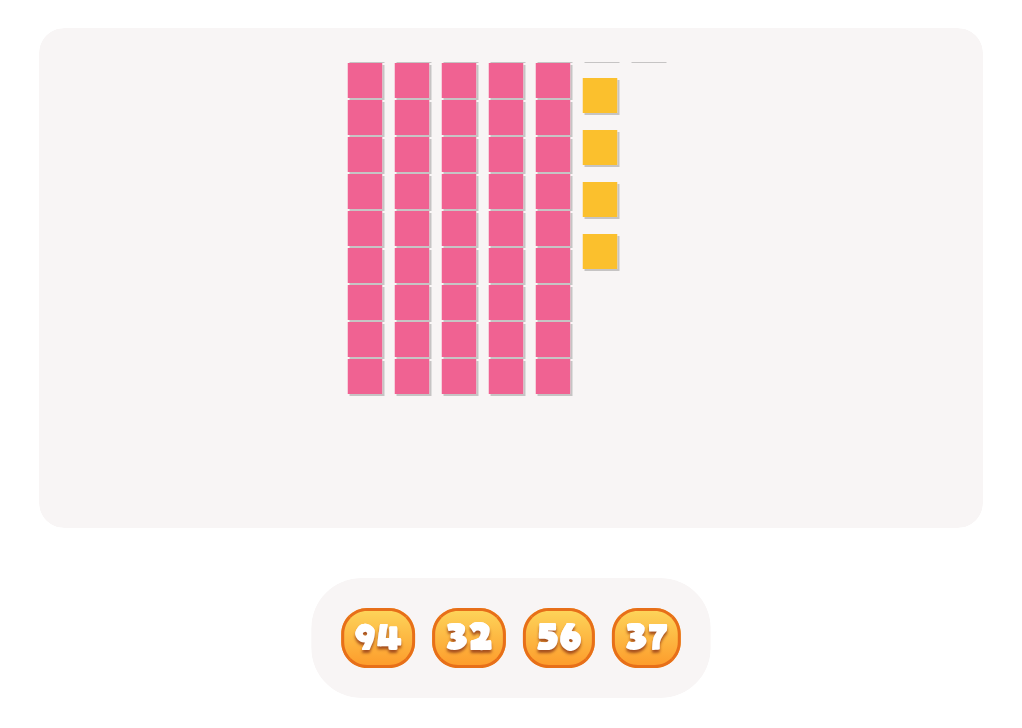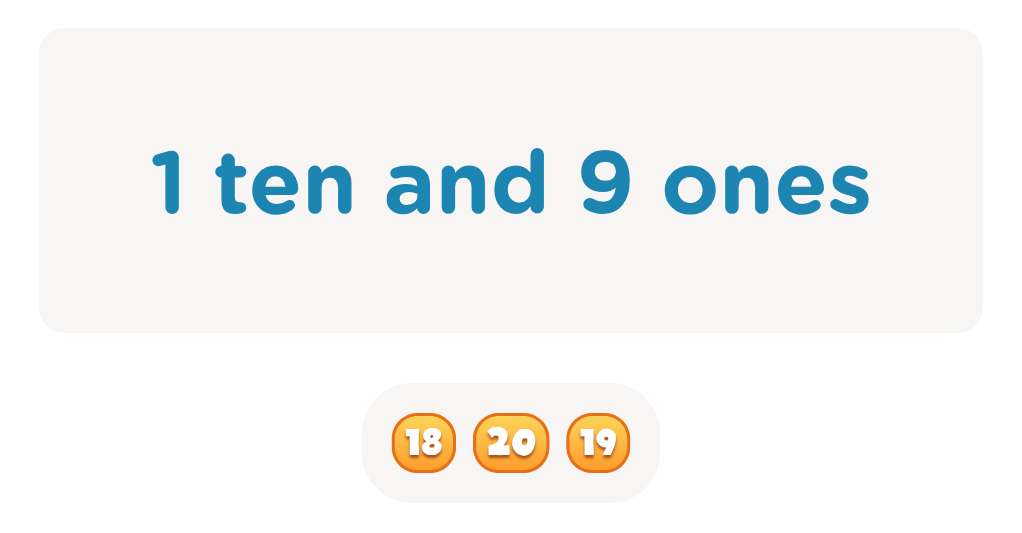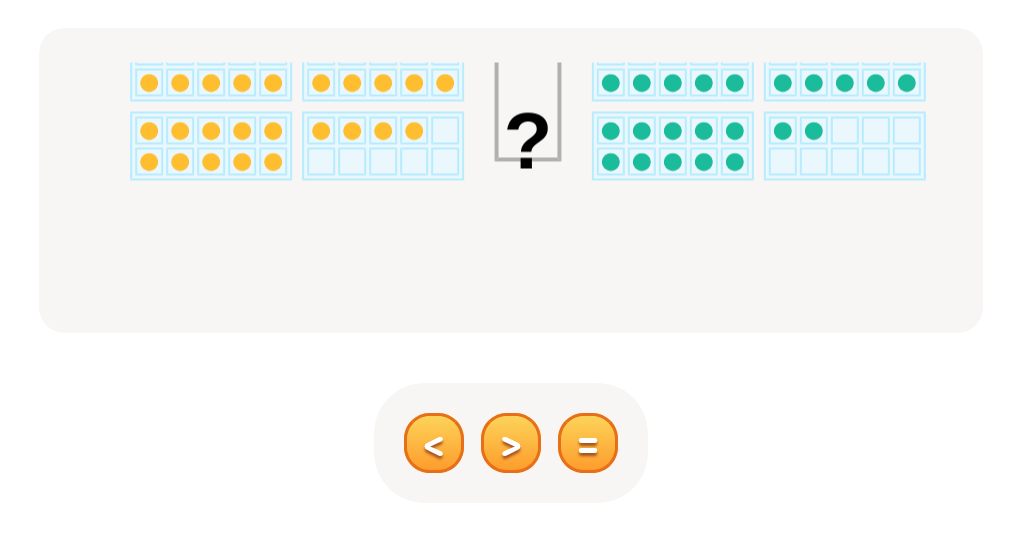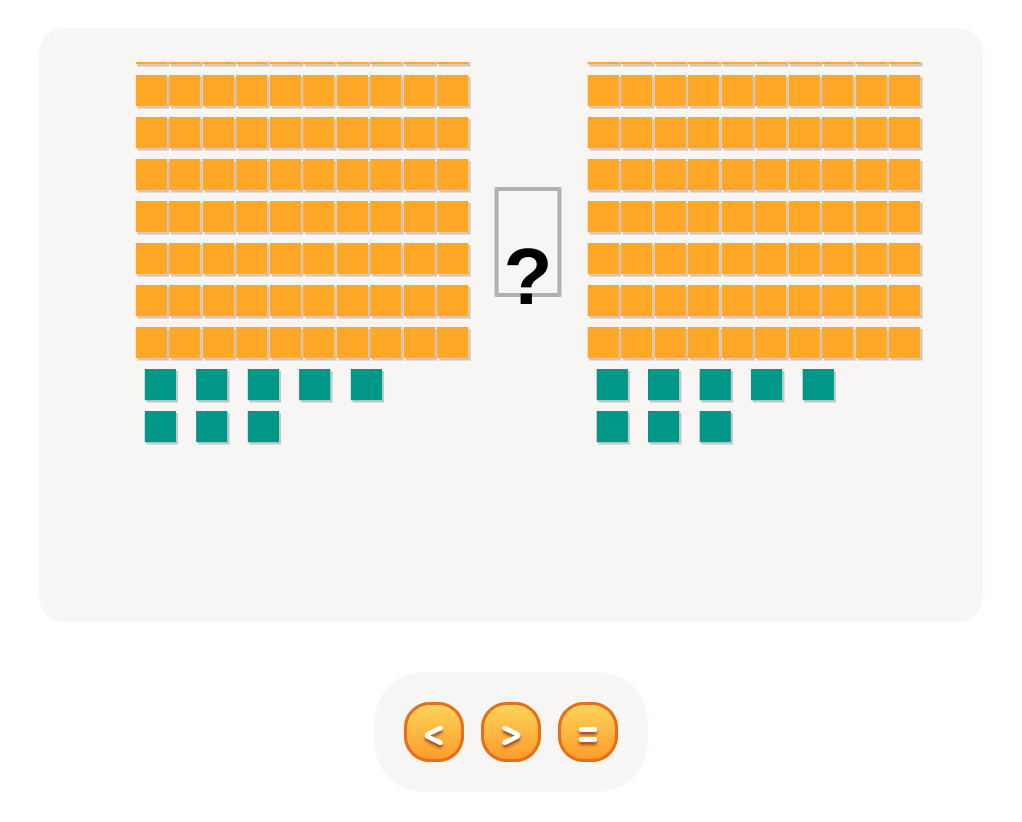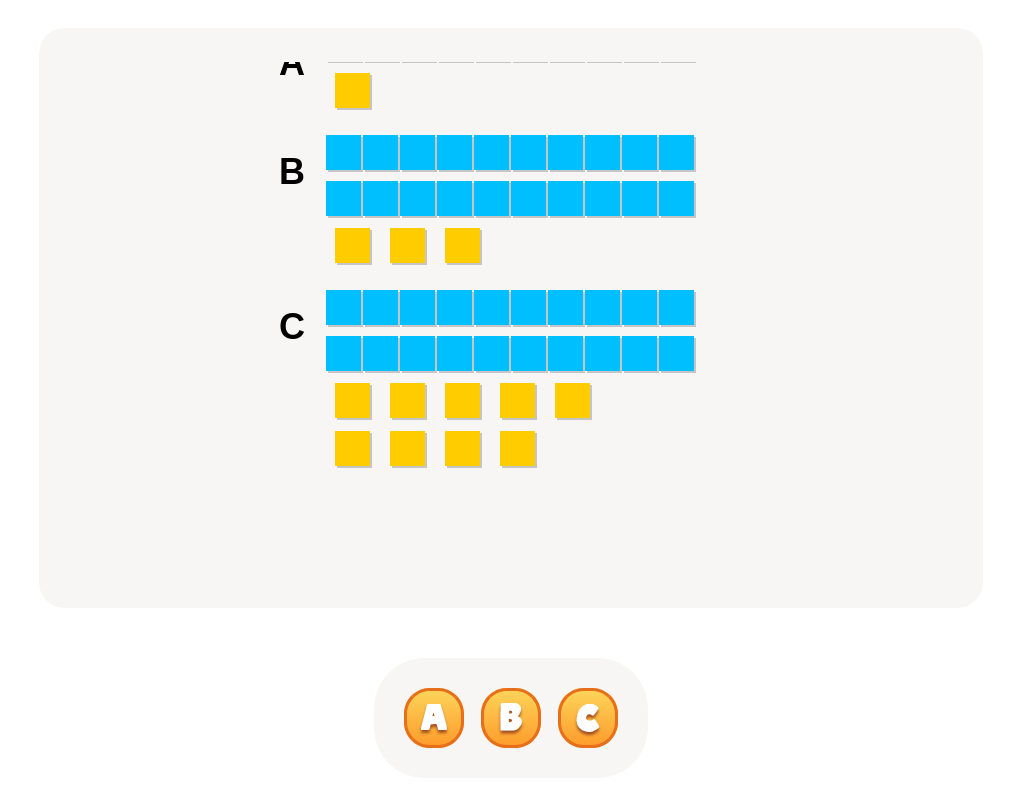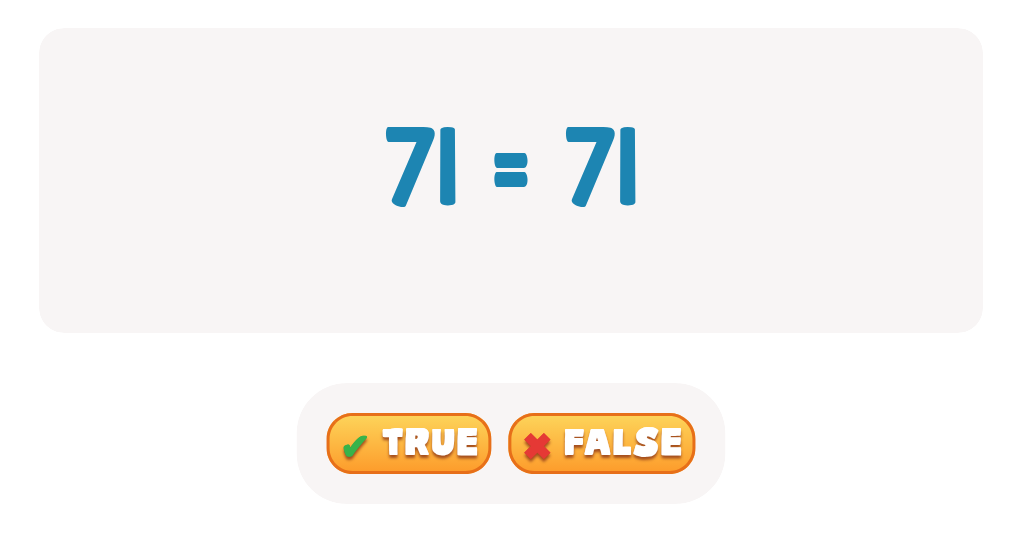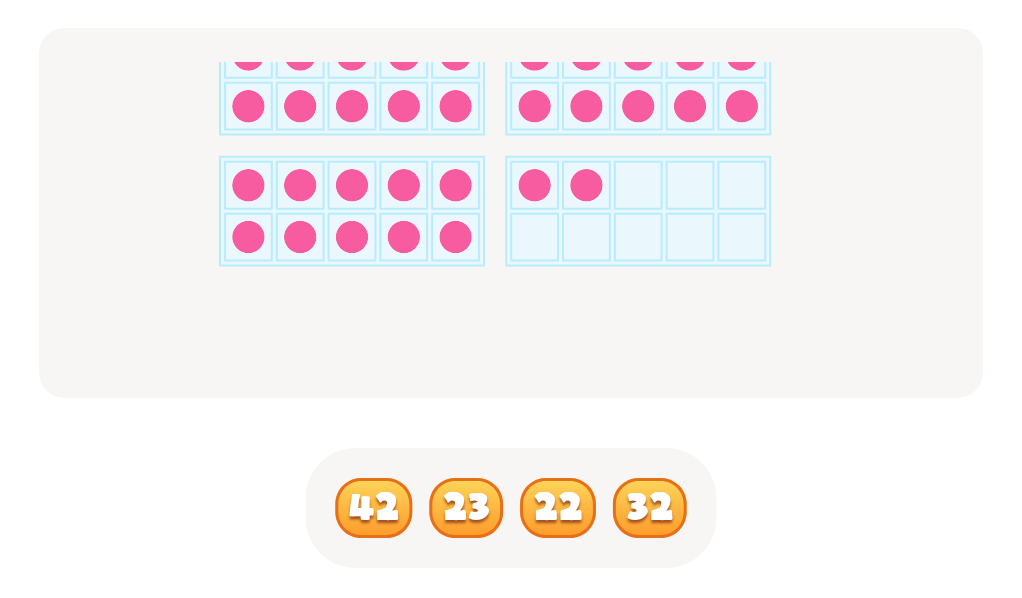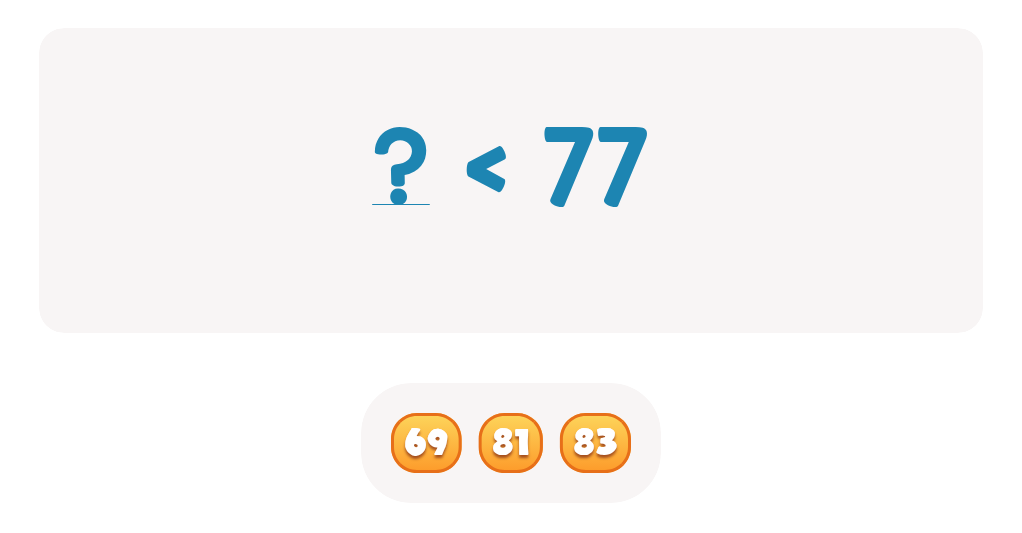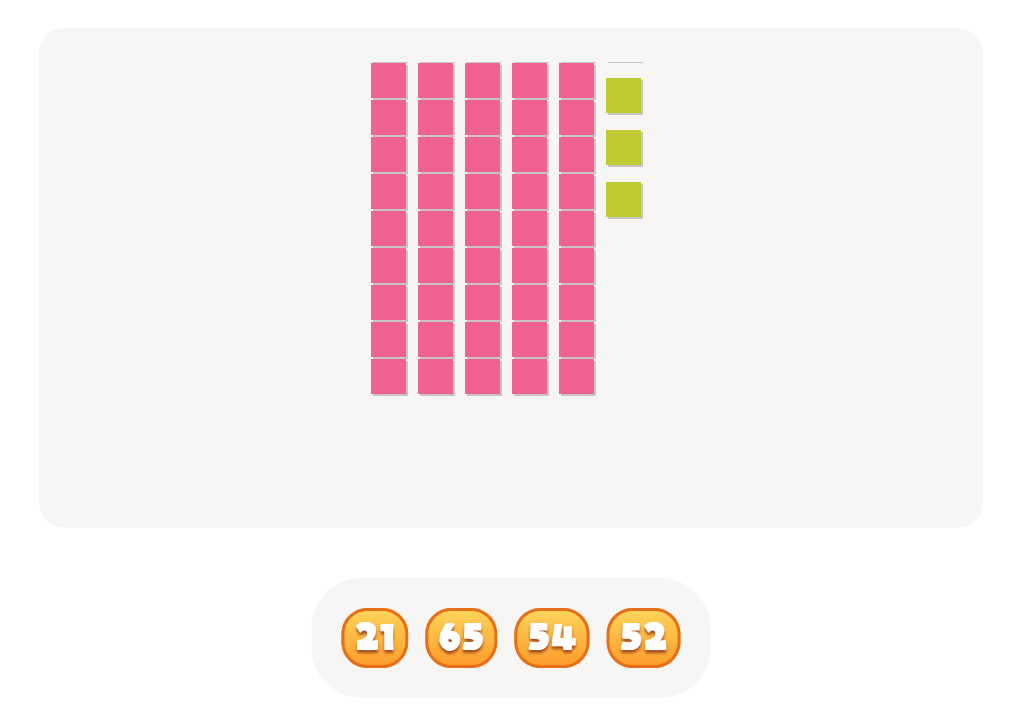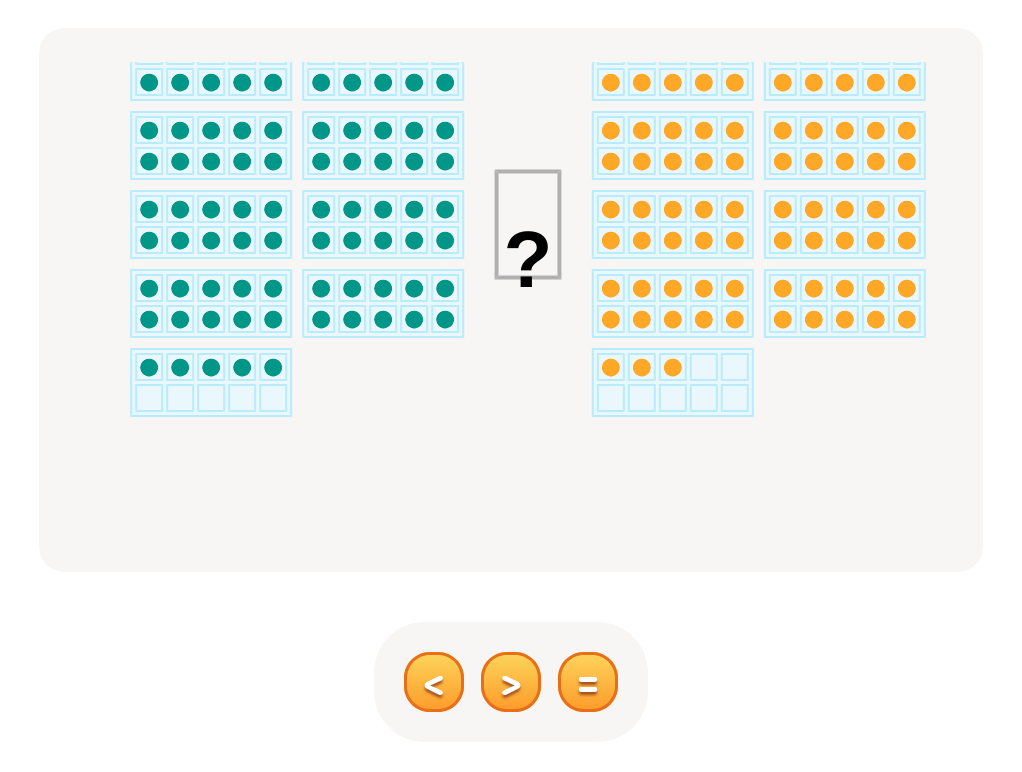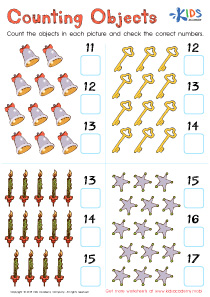Addition Practice Normal Place Value Worksheets for Ages 7-9
5 filtered results
-
From - To
Strengthen your child’s math skills with our engaging Addition Practice Normal Place Value Worksheets, perfect for ages 7-9. These worksheets focus on consolidating the understanding of place value while enhancing addition proficiency. Through a variety of exercises, children will learn to add two- and three-digit numbers with confidence. Each worksheet is designed to encourage critical thinking and problem-solving while making learning fun. Ideal for both classroom and at-home practice, these worksheets are a fantastic resource for reinforcing key math concepts and boosting overall numeracy skills in young learners. Support your child's learning journey with our expertly crafted worksheets today!
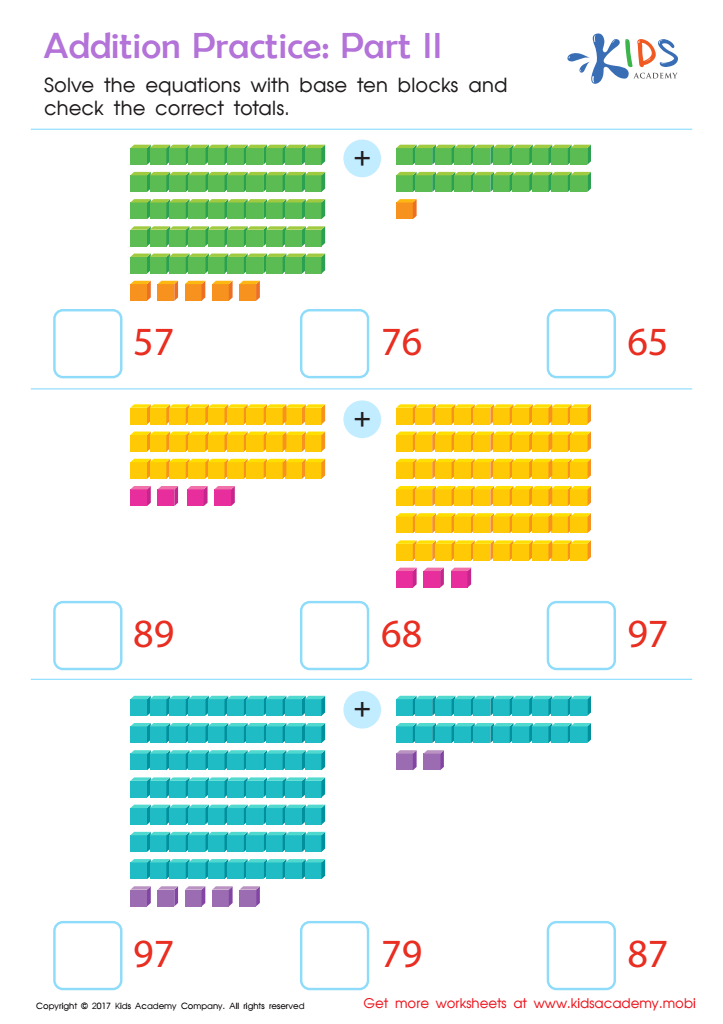

Addition Practice Sheet: Part 2
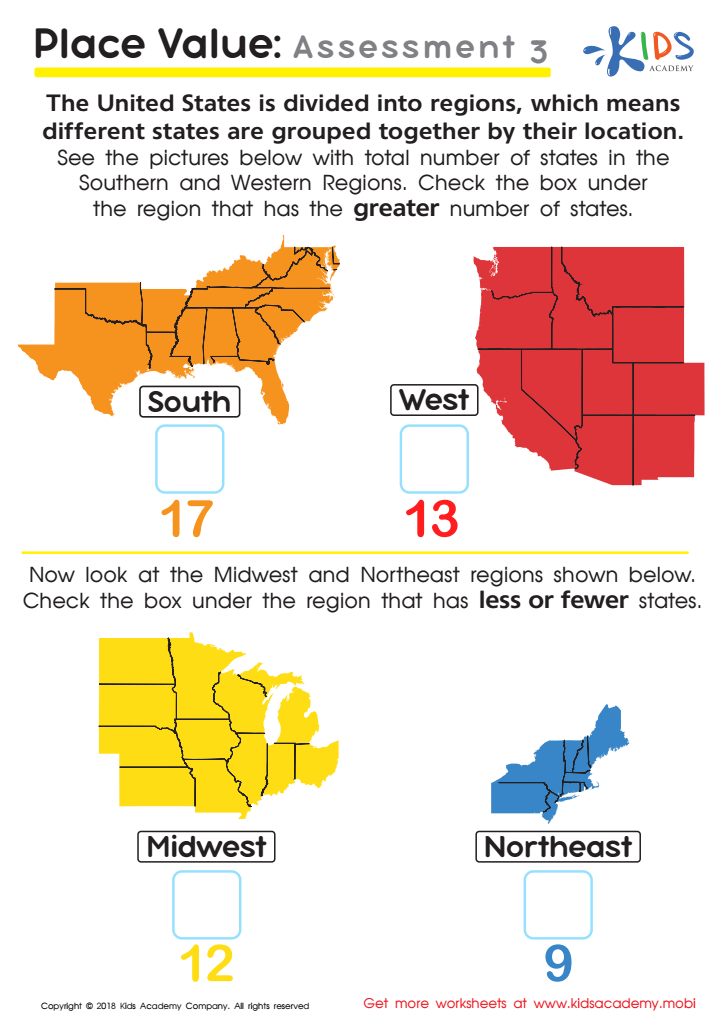

Place Value: Assessment 3 Worksheet
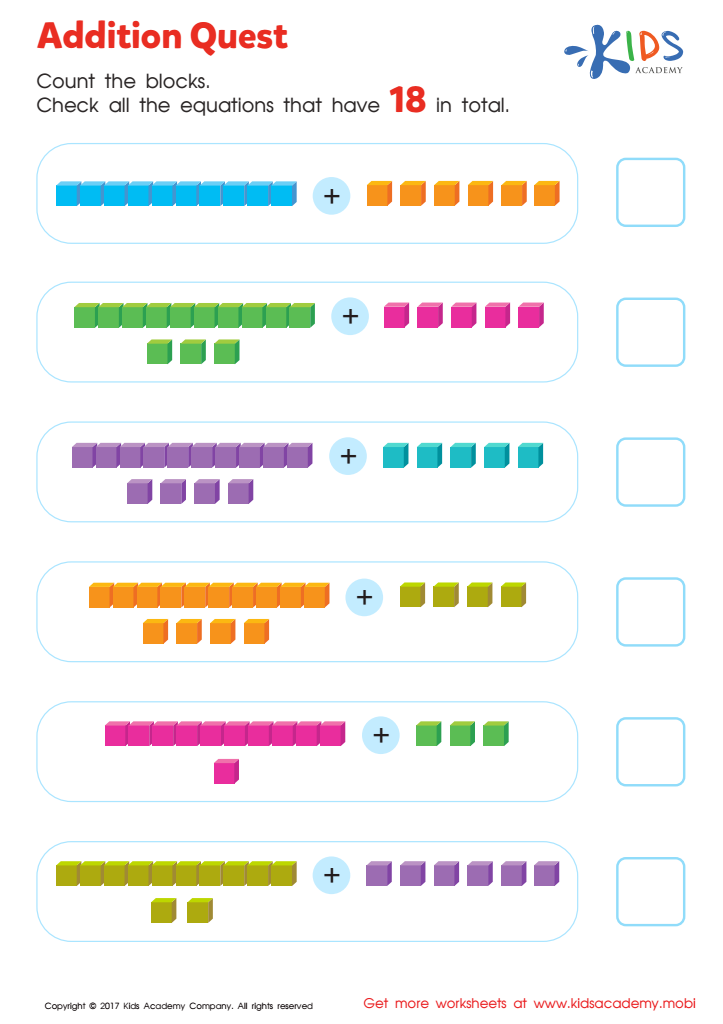

Addition Quest Worksheet: Part 2
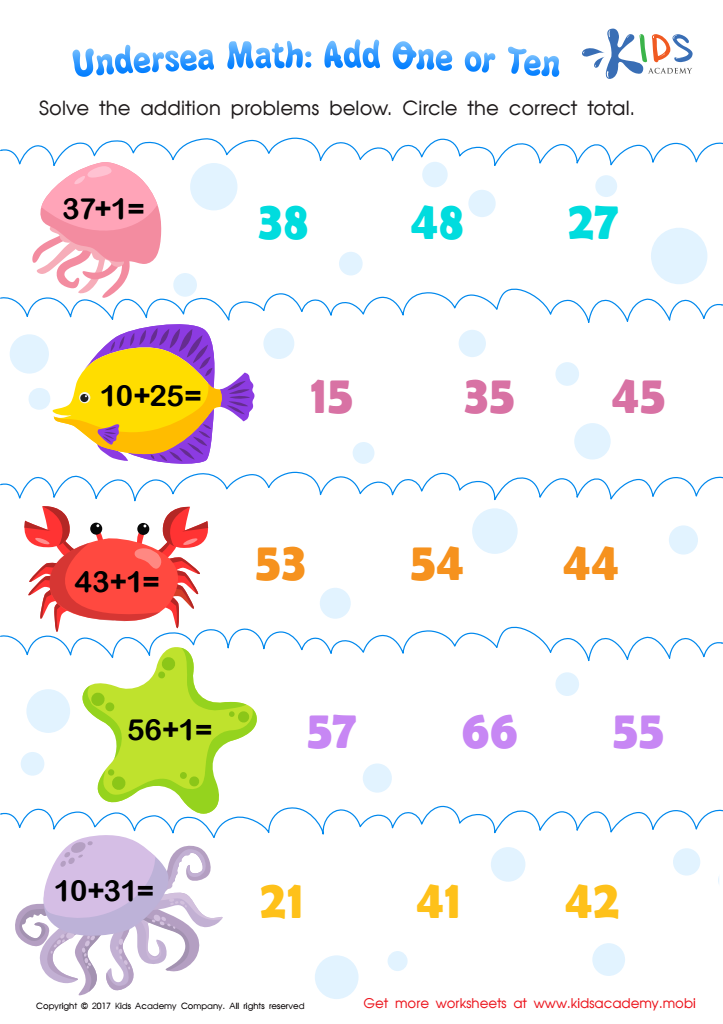

Undersea Math Worksheet
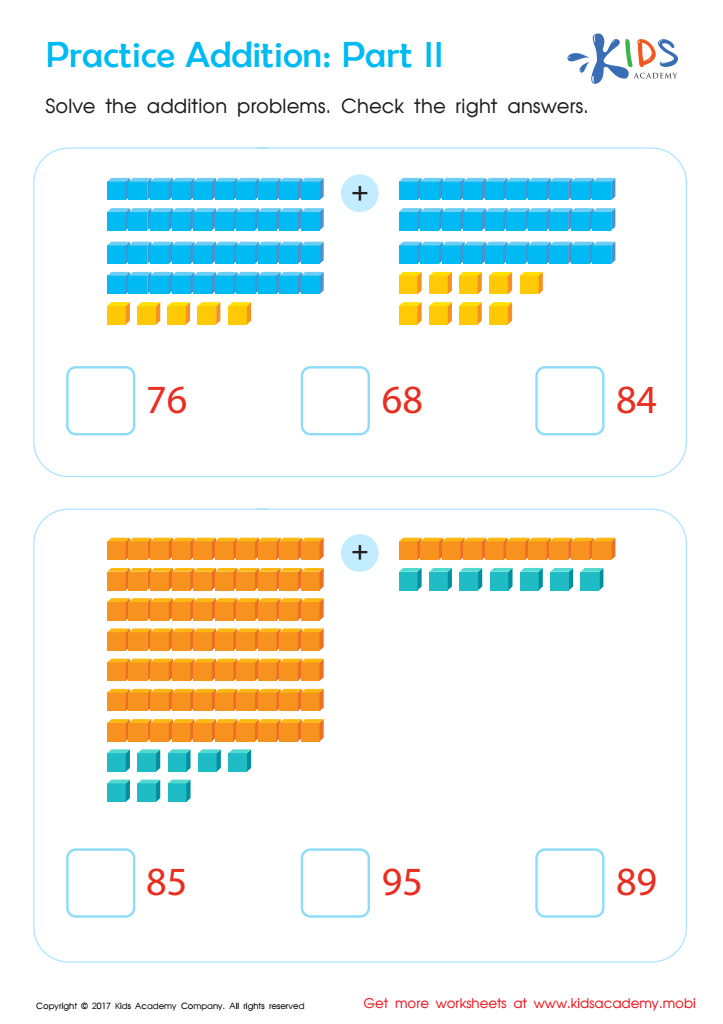

Practice Addition: Part 2 Worksheet
Parents and teachers should prioritize addition practice with normal place value for children aged 7-9 as it lays crucial mathematical foundations. At this developmental stage, children transition from simple counting to more complex arithmetic operations. Fluent addition skills foster confidence and ensure a strong grasp of basic math principles necessary for future mathematical learning.
Practicing addition helps children understand the concept of "place value," an essential building block for arithmetic competence. Knowing that the position of a digit represents its value in numbers, such as in 345 where 3 is hundreds, 4 is tens, and 5 is units, empowers them to break down and solve more intricate problems easily. This understanding also underpins their ability to perform subtraction, multiplication, and division later on.
Moreover, consistent practice with place value addition enhances cognitive abilities such as problem-solving, logical thinking, and memory retention. It prepares them for real-life applications like handling money and time management and supports academic success across subjects that rely on quantitative reasoning.
Ultimately, nurturing these skills at an early age promotes a positive attitude towards math, reducing anxiety and encouraging lifelong competency and interest in the subject. Therefore, investing time in understanding addition with proper place value is a critical element of early education.
 Assign to My Students
Assign to My Students
